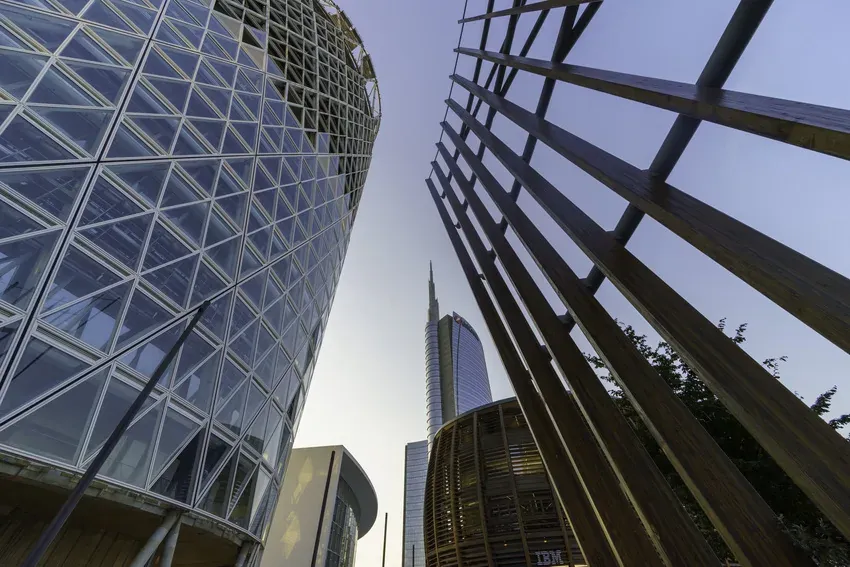Luxembourg vs. Dubai: A Guide for Fund Managers

Key Highlights
- Fund managers can benefit from unique opportunities in Luxembourg and Dubai, with each offering distinct advantages for fund domiciliation.
- Luxembourg leads in Europe with its stable political climate, high regulatory standards, and diverse financial services ecosystem.
- Dubai offers a dynamic investor base, market access to regions such as the Middle East, Africa, and South Asia, and robust tax incentives.
- Both jurisdictions feature investor-friendly legal systems, with Luxembourg rooted in European frameworks and Dubai adopting English common law.
- Corporate tax structures and withholding tax treatments vary significantly between the two, shaping fiscal decisions for funds.
Introduction
Choosing the right place to set up international investment funds is an important step for fund managers. Fund managers need to think about the rules and laws in each country. Luxembourg and Dubai are both top picks in this area. Each has its own unique benefits. Luxembourg is known as the main fund center in Europe. Dubai helps funds reach new and growing markets in the Middle East and beyond.
If you want to pick the best home for your fund, you need to know about how the rules work, the taxes, and how easy it is to reach the different markets. When fund managers look closely at these things in both Luxembourg and Dubai, they can make good decisions that fit their needs and goals.
Key Considerations for Fund Domiciliation in Luxembourg and Dubai

Luxembourg sits in the middle of Europe. It is well-known for being a top place for international investment funds. The country has strong political stability, a firm economy, and laws that help businesses. This makes it a good choice for fund managers who want things to run smoothly and safely.
Dubai is in the United Arab Emirates. It is becoming a main entry point for new markets in places like Southern Asia and Africa. Dubai has a lively business scene, lots of investors, and offers tax-free benefits. This makes it great for fund managers who are looking for new ways to grow in fast-moving markets.
Regulatory Frameworks Compared
Luxembourg has a strong regulatory framework that follows the rules of the European Union. This way, it keeps things clear and makes sure everyone follows the laws. Fund managers get help from this solid legal system and the country’s political stability. That is why many see Luxembourg as a good and safe place for their work. The country offers more than one structure, including SIF and RAIF. These work for different needs, so fund managers get flexibility and all the strict checks that keep their work safe.
On the other hand, Dubai uses English common law at the Dubai International Financial Centre (DIFC). It gives fund managers a clear legal system. Dubai has its own Financial Services Authority, which gives out licenses and watches over how things are run. This adds to the trust people have in Dubai and makes sure everyone follows good global standards. Dubai’s regulatory framework is a good choice for funds that want to grow fast or reach new markets in the world.
Each place has its own special strengths. Luxembourg’s regulatory framework is great for funds that want to work in Europe. Dubai is faster and open to new ideas, making it a fine pick for those who look to invest in the global south. You should think about where you want your fund to be most active before making a choice.
Investor Base and Market Access
Luxembourg is well known for helping link funds to Europe’s large group of skilled investors. There is a strong presence of sovereign wealth funds, institutional insurers, and high-net-worth individuals. This gives many chances to work within the European Union.
Dubai, on the other hand, keeps growing its reach with investors. It works as a gateway for capital coming from the Middle East, Africa, and Southern Asia, such as India. The Dubai International Financial Centre brings in family offices, corporate investors, and sovereign funds. This makes it a main place for funds wanting to look outside the usual markets.
Each place has its own good points. Luxembourg is great for those who want to work with Europe and its advanced financial scene. Dubai uses its location to give people chances to reach fast-growing markets like India and the UAE. These two jurisdictions both give important benefits, depending on your regional goals.
Taxation and Fiscal Incentives.

Understanding the way taxes work is important for fund managers when they need to pick between Luxembourg and Dubai. Luxembourg has a clear tax system. There are taxes on companies, capital gains, and money taken out as withholding taxes. This makes it easier for people to see how finances are managed. The place is also well-known for double tax deals, so there are rules to help investors.
Dubai, on the other hand, gives fund managers the chance for great tax savings. There are no taxes on income, capital gains, or profits. There are also exemptions and bonuses, which can help lower the costs even more. Dubai also does not have withholding taxes, making it a top choice for fund managers who want to get the most out of taxes. Next, the tax setup will be explained in more detail.
Corporate Tax Structures
Luxembourg and Dubai contrast sharply in corporate tax outcomes for fund managers. Luxembourg imposes corporate tax rates that vary per fund structure, ensuring transparency and compliance. Furthermore, special schemes exist for funds such as Reserved Alternative Investment Funds (RAIF).
Dubai operates within the DIFC framework, offering exemptions from corporate tax for up to 50 years. For fund managers, this creates a highly cost-efficient environment without sacrificing investor confidence.
| Location | Corporate Tax Rate | Cost of Living Impact |
| Luxembourg | 17-30%, based on structure | Higher European standards |
| Dubai | 0% for 50 years | Moderate, Middle Eastern lifestyle |
Carefully analyzing these structures can steer successful fund operations.
Withholding Taxes and Double Tax Treaties
Luxembourg has many double tax treaties. These help lower withholding taxes and make cross-border investment more appealing. Many treaties, also covering places like Paris and Hong Kong, make it easier for fund managers to send profits back home. This helps them with their global work.
On the other hand, Dubai does not have withholding taxes in the DIFC. This makes it very good for people or businesses from other countries. Dubai makes money flows smooth for fund managers who want to get into international markets. There is no need for special treaties to help with this.
Each place has a different good point for people who manage funds. Luxembourg gives more choice by using treaties, while Dubai takes away problems by not having withholding taxes at all. Fund managers should look at what is best for them and what fits with their plans if they want to go into these places.
Fund Setup and Administration Requirements
Establishing and managing funds is key to how your business works. Luxembourg has clear and structured steps that match top financial services rules. It often takes around 3 to 6 months to set up more complex funds, such as SICAR.
Dubai makes starting a fund faster by using simple processes. The DIFC leads the way in financial services there. You can set up a fund in just a few weeks, making it great if you need to join the market quickly. So, if you want speed and flexibility, or careful planning and structure, you will find what works for your fund’s plan. The next steps will show what to do for setup and staying within the rules in both places, helping you see which is best for you.
Formation Processes and Timelines
Luxembourg is known for how steady it is because of all the steps needed to set up there. Some fund options like RAIF and SIF can take from one to six months to finish. This is because Luxembourg has deep legal systems. Fund managers in Luxembourg have to follow all the important financial rules and qualifications.
In Dubai, the DIFC makes fund setups much faster, often only taking a few days. Fund managers in Dubai get strong support and top-level arbitration help. This lets them start working right away, with no big issues during the setup.
Both Luxembourg and Dubai are good for different people. Luxembourg works well for those fund managers who want to grow in Europe in a secure and organized way. Dubai is great for those who want quick access to chances in the region. The choice between these two places can be key for those who want to build good and successful funds.
Ongoing Compliance and Reporting Obligations
Luxembourg puts strong rules in place for fund managers. There are regular checks, tight following of EU rules, and clear steps so everyone can see how money is handled. This keeps funds safe and gives financial stability. Many long-term fund managers like this.
Dubai has yearly reporting rules set by the DFSA. The process is not as heavy on paperwork or red tape. Fund managers here can run their work with less effort, which helps them move fast.
Both Dubai and Luxembourg offer tested compliance rules. Luxembourg is known for deep and careful checks. Dubai helps fund managers work quickly with fewer steps. The right place for your fund depends on what your group needs and where you want to work.
Conclusion
To sum up, both Luxembourg and Dubai give fund managers good reasons to start their business there. Luxembourg is well-known for having a strong regulatory framework. It also has many tax agreements with other places. This makes it a top pick for regular investment funds. Dubai, on the other hand, offers a lively market, tax benefits, and more people looking to invest. This attracts those who want different kinds of fund set-ups. It is important for fund managers to know about the details in each place. This helps them make good choices for their business plans. If you have any questions or want more help, please reach out!
Frequently Asked Questions
What are the main advantages of setting up a fund in Luxembourg versus Dubai?
Luxembourg gives fund managers access to one of the most advanced investor bases in all of Europe. It is strong in how it controls things, with a robust regulatory framework that helps keep everything clear and open.
Dubai, on the other hand, lets fund managers get into new markets. It has tax-free systems that make it good for those who want to work in areas outside Europe. If you are looking to explore more places and not just Europe, Dubai can be a good choice. Both Luxembourg and Dubai offer their own ways to help people and companies grow, depending on where you want to go and what you want to do.
How do investor perceptions differ between Luxembourg and Dubai?
Luxembourg is the place many conservative investors like, because it is in Europe and has a steady and safe environment. On the other hand, Dubai is known for being full of energy and growth. Fund managers in Dubai often look for fast change and new chances in the UAE and South Asia. Both Dubai and Luxembourg serve people with different needs and hopes in financial services.
Are there restrictions on foreign ownership in either jurisdiction?
Luxembourg does not have many rules, and they are in line with EU standards. Dubai’s DIFC is very friendly to people from other countries. It lets them own 100% of their business in the Dubai International Financial Centre. Both Dubai and Luxembourg have legal systems made to get global investments.
Which location offers greater flexibility for alternative investment funds?
Dubai has a tax-free system and an easy regulatory framework. This helps people set up alternative investment funds more quickly. Luxembourg is still a good place for fund managers. It is best for those who want a structured, long-term place to work under old EU regulatory frameworks.
What are the typical costs involved in fund formation and maintenance in each location?
Luxembourg has administrative costs that follow European standards. These can be higher, because of rules that are hard to follow. But Dubai’s DIFC has lower setup and maintenance costs. The systems there are simple and work fast, making it more affordable for people in the Middle East. This makes dubai a good choice when you want to compare it with luxembourg for the same services.
What are the key regulatory differences between Luxembourg and Dubai for fund managers?
Luxembourg depends on frameworks from the EU to guide them. This helps the country keep structure and political stability. In Dubai, they use English common law. This gives them more flexibility. It also helps protect investors well, because of the DIFC’s supervisory authority. With this system, Dubai can support many different financial strategies.
How does the tax environment in Luxembourg compare to that of Dubai for investment funds?
Luxembourg has set rules for both company taxes and withholding taxes. It also has many double tax deals with other places. Dubai stands out for its great tax setup. People and businesses in Dubai enjoy no need to pay corporate tax or capital gains tax. DIFC rules also mean there are no withholding taxes.
What types of funds are most commonly established in Luxembourg versus Dubai?
Luxembourg is the place to go if you want to set up EU-compliant funds like SICAR and RAIF. These choices are good for managers who look at things for the long term. Dubai, on the other hand, works to bring in funds with many different types of setups. The city pushes growth markets and is a good pick if you are after more ways to move fast and grow in the region.
What are the benefits of setting up a fund in Luxembourg compared to Dubai?
Luxembourg is known for its political stability and gives people access to a wide investor area in the Europe market. When you look at Dubai, its place in the world is good. It gives tax-free benefits and lets you reach fast-growing regions, like Southern Asia. Both Luxembourg and Dubai be good choices, depending on what goals your fund has.
How can fund managers navigate the legal frameworks in Luxembourg and Dubai?
Fund managers use Luxembourg’s EU rules for structured setups. Dubai’s DIFC uses English common law to keep things simple. At the same time, it keeps a robust regulatory framework. This makes it easy to work globally and still have strong rules in place. The regulatory framework helps fund managers in both Luxembourg and Dubai.


